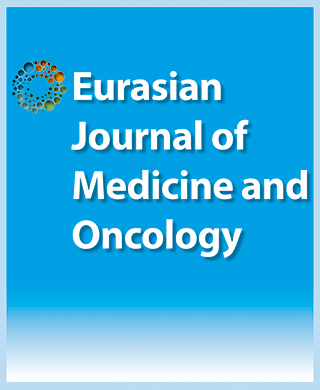

Effect of Losartan on Cell Proliferation and Reactive Oxygen Species Scavenging in Gastric Cancer Cell Lines
Maedeh Raei1, Mohadeseh Ahmadi1, Saeed Abrotan2, Alireza Razavi3, Akbar Hedayatizadeh-Omran1, Amir Shamshirian1, Reza Alizadeh-Navaei11Gastrointestinal Cancer Research Center, Non-Communicable Diseases Institute, Mazandaran University of Medical Sciences, Sari, Iran, 2Department of Cardiology, School of Medicine, Babol University of Medical Sciences, Babol, Iran, 3Student Research Committee, School of Medicine, Mazandaran University of Medical Sciences, Sari, Iran,
Objectives: The study aims to investigate the mechanisms underlying the anti-cancer effects of losartan in gastric cancer cell line. Methods: In this experimental investigation, MKN-45 cells were cultivated in RPMI-1640 medium supplemented with 10% fetal bovin serum and 100 ?g/ml streptomycinin, and 100 IU/ml penicillin, and maintained under controlled conditions of temperature and CO2. Following washing with PBS, all cells were detached using trypsin, centrifuged and then 8×103 cells re-plated onto 96- well plates. Then various concentrations of Losartan (1000, 2000 and 3000 µM) and 5-fluorouracil (12.5 µM) were added to each well in triple therapy. Anti-proliferative effects of this treatment were evaluated through MTT assay and ROS detection by ROS-sensitive fluorescence indicator after 24 hours. Results: Losartan greatly enhanced the ant-proliferative effect at all tested doses, especially with an IC50 of about 3000 µM in contrast to other groups (P<0.01). Also, cell ROS content due to losartan treatment was significantly reduced compared to untreated group (p<0.05), and the cells treated with Losartan (3000 µM) had considerably lower fluorescence than other groups (p=0.000). Conclusion: In conclusion, this study demonstrated that the various concentration of losartan treatment reduced the viability of MKN-45 gastric cancer cell proliferation, concomitant with a notable decrease in ROS production.
Cite This Article
Raei M, Ahmadi M, Abrotan S, Razavi A, Hedayatizadeh-Omran A, Shamshirian A, et al. Effect of Losartan on Cell Proliferation and Reactive Oxygen Species Scavenging in Gastric Cancer Cell Lines. EJMO. 2024; 8(2): 135-140
Corresponding Author: Reza Alizadeh-Navaei



